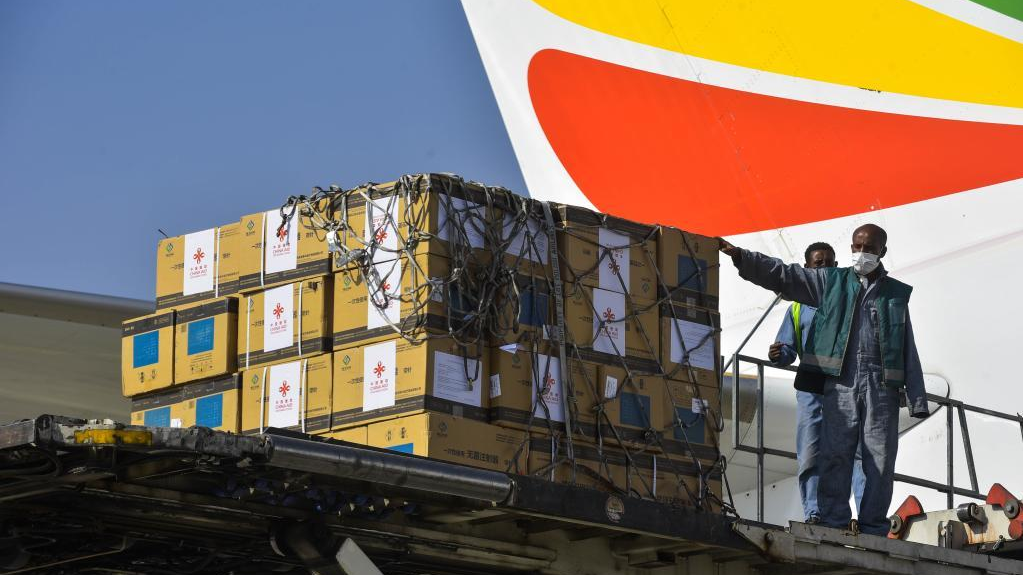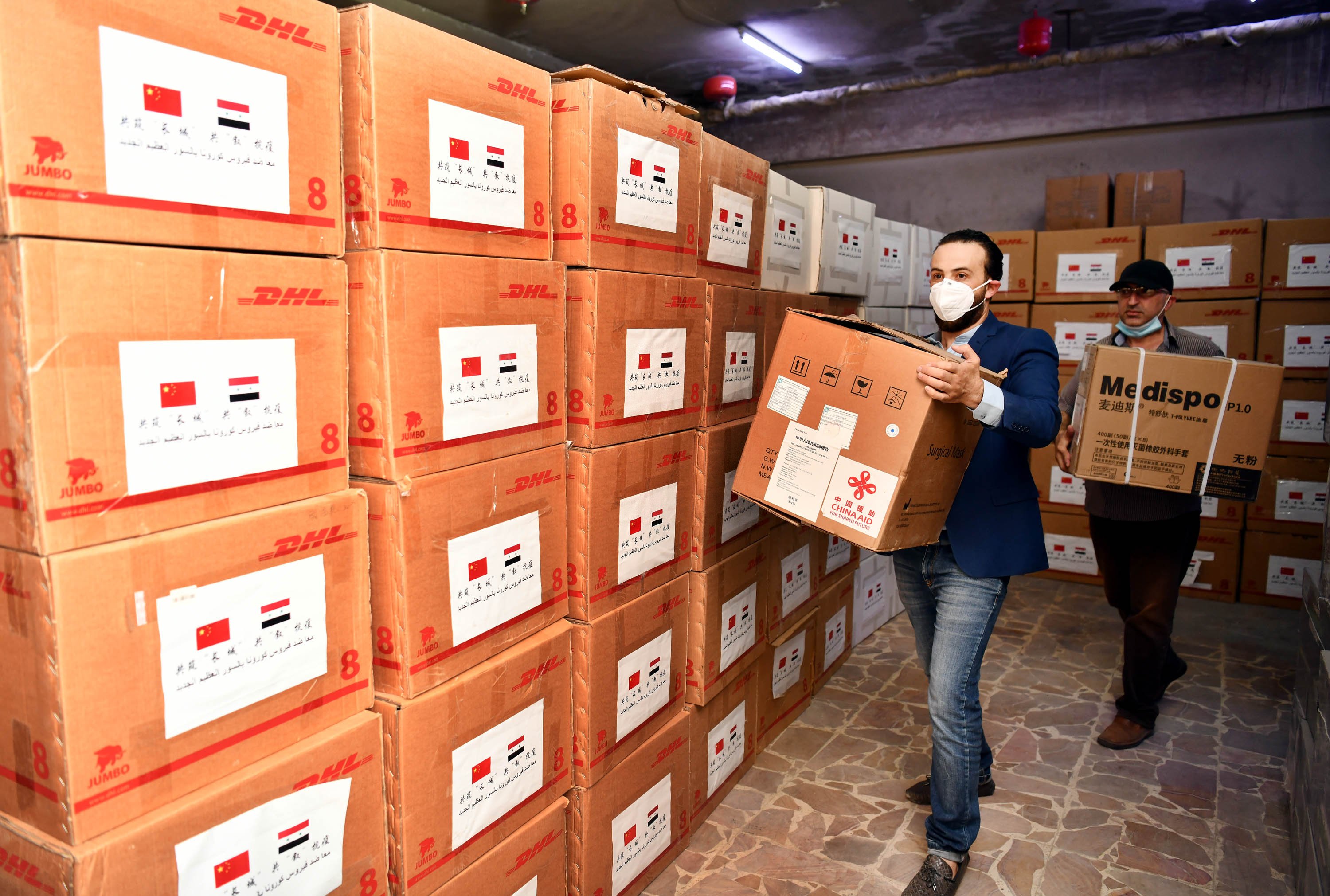
Workers unload China's Sinopharm COVID-19 vaccines, donated by the Chinese government to Ethiopia, at the Addis Ababa Bole International Airport in Addis Ababa, Ethiopia, March 30, 2021. /Xinhua
Workers unload China's Sinopharm COVID-19 vaccines, donated by the Chinese government to Ethiopia, at the Addis Ababa Bole International Airport in Addis Ababa, Ethiopia, March 30, 2021. /Xinhua
Editor's note: Hamzah Rifaat Hussain is a former visiting fellow at the Stimson Center in Washington and serves as assistant researcher at the Islamabad Policy Research Institute (IPRI) in Pakistan. The article reflects the author's opinions and not necessarily the views of CGTN.
On April 7, top G20 finance ministers and central banks discussed debt relief for lower income countries which are struggling with domestic inoculation drives. The ministers and bankers were quick to accuse Beijing for stalling joint frameworks for debt restructuring and forgiveness which is critical towards resuscitating pandemic stricken economies.
As a major G20 global player, there is no evidence to suggest that Beijing adopted any policy or stance which is not conducive towards reaching an all-encompassing solution for countries suffering from the pandemic.
The truth is that disclosure of loans is being equated with "dragging one's feet" which is contrary to facts. The virtual meeting eventually called for the IMF to prepare for a new allocation of special drawing rights and extend debt relief for poorer nations through the end of 2021. China has played a key role in providing relief to pandemic-stricken countries through concessionary loans and more. One of the latest examples is Sri Lanka, where both Colombo and Beijing signed a $1.5 billion currency swap deal in March this year to alleviate the island's struggle with debt repayments to other donor nations.
Furthermore, the narrative that Chinese assistance to developing nations is an anathema for debt servicing efforts with inevitable "debt traps" has been challenged by Pradumna Rana from Singapore's Nanyang Technology University and Ji Xianbai from Renmin University of China in a recent publication surveying 26 of the Belt and Road economies, where 41.6 percent of respondents believed the Belt and Road Initiative was of net benefit to their countries.

Workers carry boxes of medical equipment donated by China in Damascus, capital of Syria, June 24, 2020. /Xinhua
Workers carry boxes of medical equipment donated by China in Damascus, capital of Syria, June 24, 2020. /Xinhua
Several other examples globally demonstrate that China has alleviated and not contributed to debt woes of pandemic-stricken economies. One of the leading economists in the world Jeffrey Sachs has acknowledged that China alongside other G20 countries had already signaled support for the recent allocation of $650 billion of the IMF's reserve asset and the problem lies elsewhere.
So where exactly does the issue lie? In all honesty, Beijing had already signed onto the November 2020 joint framework for debt restructuring and forgiveness. In addition, China has been donating COVID-19 vaccines to other countries, which also deals with pandemic relief.
The problem lies elsewhere. Developing countries in South America and Asia are facing a serious shortage of vaccines due to vaccination campaigns heavily tilted towards more affluent countries such as the UK and the United States. Therefore, China's aid and support for other countries has been lauded across the world for its unconditional nature.
Perhaps it is worthwhile for G20 ministers to introspect at key realities which have compounded issues for developing nations such as capital flight due to rising U.S. interest rates and weakening currencies, which have added to the burden of dollar-related debt which has nothing to do with Chinese investments, loans or state-sponsored financing.
The divide is also evident given that the IMF itself estimated that bringing the pandemic back to control would result in an additional $1 trillion in tax revenue for advanced economies due to stronger growth. Developing nations would clearly be at the receiving end of Western malfeasance. China, on the other hand, canceled $78 million in debt owed by Cameroon in 2019 and established international organizations such as the Asian Infrastructure Investment Bank and the China Development Bank which have funded projects as well as provided adequate provisions for debt relief.
Hence, reticence over disclosing bilateral agreements which are based on goodwill and cooperation does not equate to stalling relief for poorer countries and neither can it detract from the fact that global debt relief woes are due to Western nations' inability to bridge the gap. There is no evidence to suggest that China is dragging its feet on debt restructuring or "vaccine diplomacy" which it is being accused of.
(If you want to contribute and have specific expertise, please contact us at opinions@cgtn.com.)

